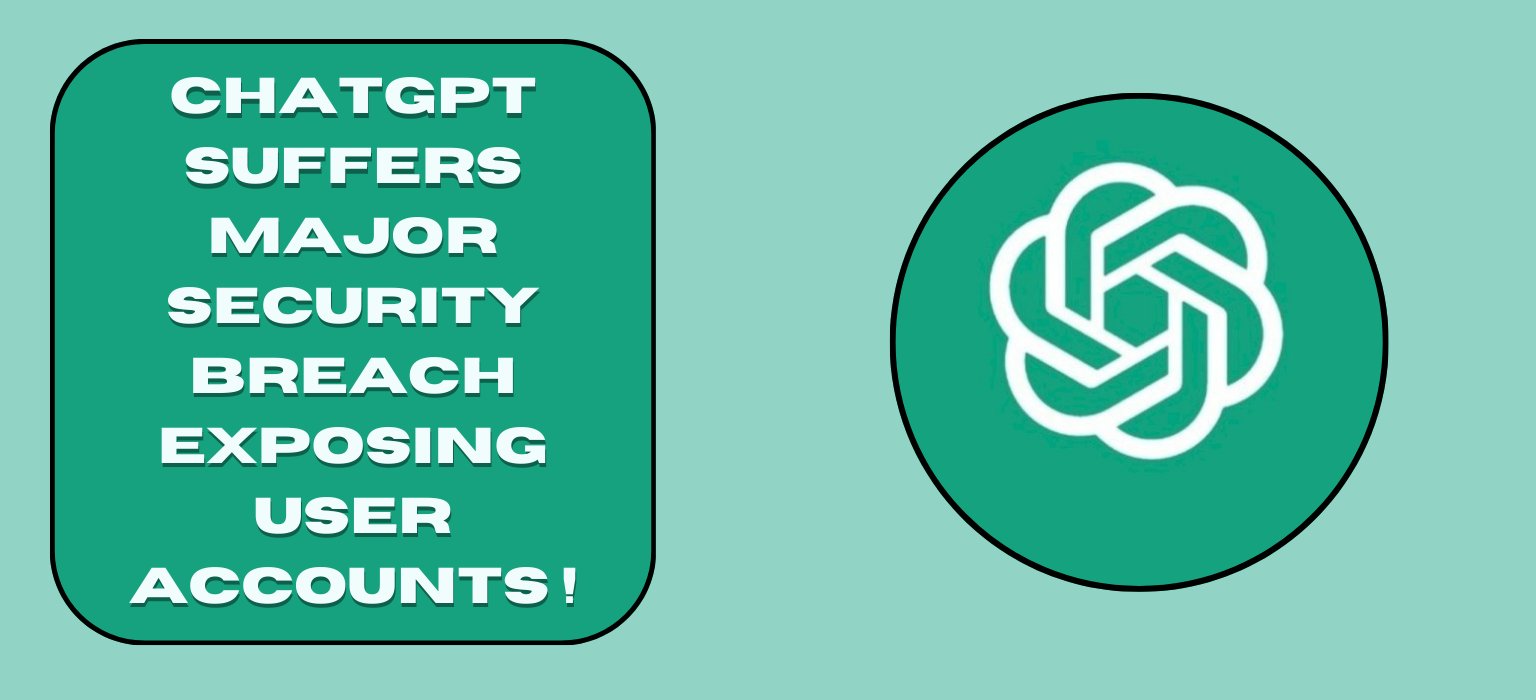
ChatGPT, the viral conversational AI chatbot from OpenAI, has suffered a critical security incident. User accounts were compromised, exposing private chat histories and highlighting vulnerabilities in ChatGPT’s security protections.
ChatGPT – An Alarming Discovery
The breach came to light when a ChatGPT user from Brooklyn, New York noticed unfamiliar chat logs appearing in his account. Alarmed, he contacted OpenAI to investigate.
OpenAI confirmed that multiple unauthorized logins had originated from Sri Lanka, indicating deliberate, targeted account access. This was not simply an internal glitch.
Someone had successfully broken into ChatGPT accounts and gained access to sensitive user data.
Security – A Sophisticated Cyber Attack
While the users had strong passwords, the attack demonstrated the sophistication of methods that criminals use to compromise accounts. OpenAI had severe security gaps that were exploited in this incident.
Most troubling was a critical vulnerability allowing attackers to steal login credentials, names, email addresses and access tokens through a web cache deception attack. This gave them the keys to access accounts at will.
Privacy Implications
Beyond personal data loss, this attack exposed deep flaws in ChatGPT’s ability to protect user privacy. Chat logs with the AI assistant can reveal highly sensitive information that users assume is private.
With account takeovers, those chat histories are visible to cybercriminals. This poses major privacy risks for ChatGPT users trusting the platform with private conversations.
The discovery raises pressing questions around OpenAI’s data practices and jeopardizes user trust.
An Industry Wake-Up Call
This shocking incident serves as a wake-up call for the AI industry. As platforms like ChatGPT gain immense popularity, they become high-value targets for cybercriminals.
But many lack mature security postures to match the sensitive data they accumulate. This breach underscores the need for services like ChatGPT to make security and privacy core priorities from day one.
Major tech firms are taking notice. Giants including Samsung banned internal ChatGPT use after noticing leaks of proprietary source code.
As AI capabilities advance, the sector must likewise evolve its security measures before disasters erode consumer and business confidence.
What OpenAI is Doing About it
Facing intense scrutiny, OpenAI has pledged to revamp security and privacy defenses in light of the attack.
Specific measures remain unclear. But with glaring vulnerabilities exposed, the company must race to identify and resolve security gaps allowing account takeovers and data theft.
Implementing robust access controls, intrusion prevention, and credential security systems should now be top priorities for the startup.
OpenAI introduced a ChatGPT “Incognito Mode” in 2022 that limits conversation logging.
But with such mode lacking by default, adding options for users to easily clear histories could help limit exposure. Temporary chat functions may also be on the horizon.
Best Practices for Users
For ChatGPT users concerned over account security, experts emphasize basic precautions:
- Use strong, unique passwords and enable two-factor authentication
- Avoid sharing personally identifiable information
- Frequently clear your ChatGPT history and conversations
- Consider using ChatGPT’s Incognito Mode by default
- Set up account activity alerts to spot unauthorized access attempts
- Be wary of phishing attempts seeking your credentials
While OpenAI must urgently address the glaring security gaps, users too must exercise caution around sharing private data.
As AI capabilities grow exponentially, both platforms and individuals must make security and privacy consistent priorities in this emerging frontier.
Final Thoughts
The ChatGPT breach offers a sobering reminder – as AI systems become further enmeshed into our digital lives, we must demand resilient security from the services entrusted with our sensitive information.
OpenAI failed at this basic expectation. But with rapid learnings, increased vigilance and enhanced defenses, both the company and its millions of users can build greater trust and confidence in this immensely powerful technology.
Read More :-
- How to Enable Apple’s Powerful Stolen Device Protection 2024
- Samsung Rolls Out New Quick Share App, But It’s A Bit Buggy
- This Hidden Chrome Setting to Give It a Speed Boost 2024
- 5 Reasons Why GameCube’s Arrival on Nintendo Switch Is Inevitable
- New Xbox Series S Coming in 2024: What to Expect
- Should You Subscribe to ChatGPT Plus in 2024? Examining the Pros and Cons
